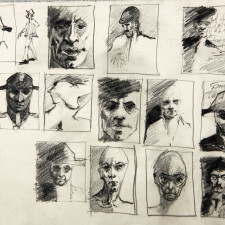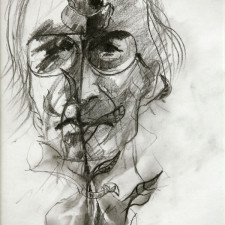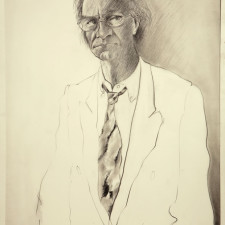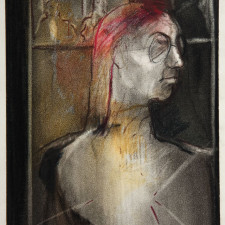Press Cuttings Eloquent Plea for Charity in Gate Play
John Kelly has made an intensely eloquent and fervent plea for Christian charity in its broadest meaning in his first play “The Third Day”, which John Molloy is presenting in the Gate Theatre. There is monumental humanity and sincerity in this little tragi-comedy which, however sketchy, formless and at times obscene it may be, provides an extremely moving and rewarding experience.
The setting is a top room in a Mountjoy Square tenement. The main character is Ned Doyle, an idle, dreaming, whimsical character with a philosophy based firmly on Christian fundamentals, and with a great fund of love and pity and understanding. His crony and fellow-waster, Patrick Maher, lives in an adjoining tenement room and together they watch life go by and comment on the way it is mis-lived.
There is no plot, but an old man dies and a deserted girl commits suicide. There are sharp stabs at social and educational exile and at the green hills of New York, and there are dozens of pubs. But the theme all the way, to which Mr. Kelly returns with dogged persistence, is the need of charity.
Mimic Genius
The part of Ned Doyle is a splendid vehicle for John Molloy, who creates a character of immense wistfulness and sympathy. His genius at mimicry is given scope and his extraordinary ability to change a mood from the farcical to the utterly pathetic in the twinkling of an eye is brilliantly displayed. Mr. Molloy can touch the heart as nobody else, and in “The Third Day”, although the material he is given is scant enough at times (the scene where he shows his deep love of country could be ludicrous in other hands) his performance is a perpetual joy.
Aidan Grennell fits in perfectly as the crony, Maher, and plays with fine sensibility, and Iris Lawler as a hard-tongued neighbour is excellent.
Yvonne Voigt’s direction blends the comedy, the pathos, the whimsy and the touch of the macabre into an acceptable unity and the setting by John Kelly himself is in line with the general mood.
As a curtain-raiser there is a one-act “experiment in dialogue and shape” entitled “Shapes”, also by Mr. Kelly. Here there is clever play on words and different attitudes and senses of value are examined.
During the interval street ballads are attractively sung by Ronnie Drew.
D.R. (probably Desmond Rushe), The Irish Independent, 08.1961




